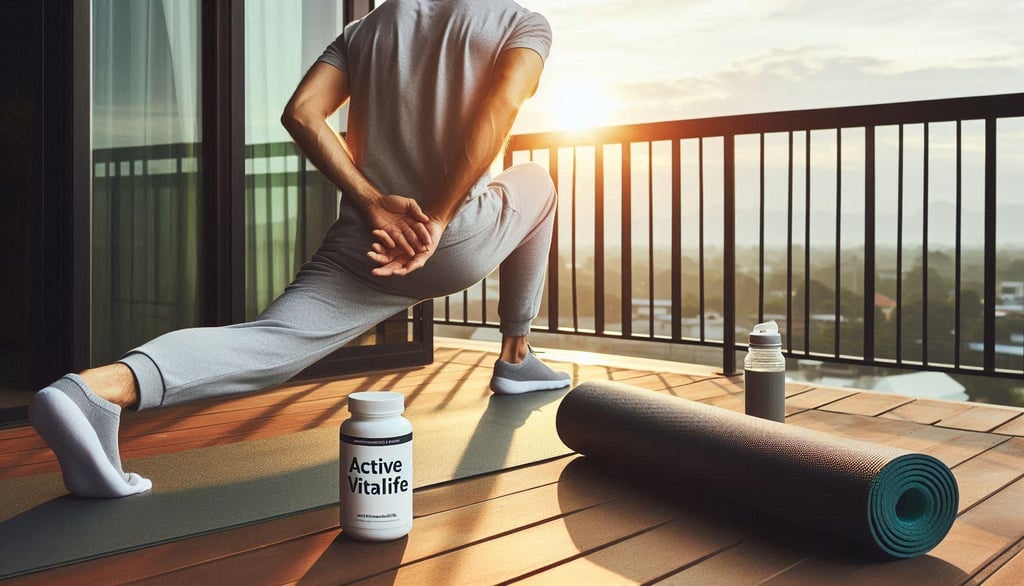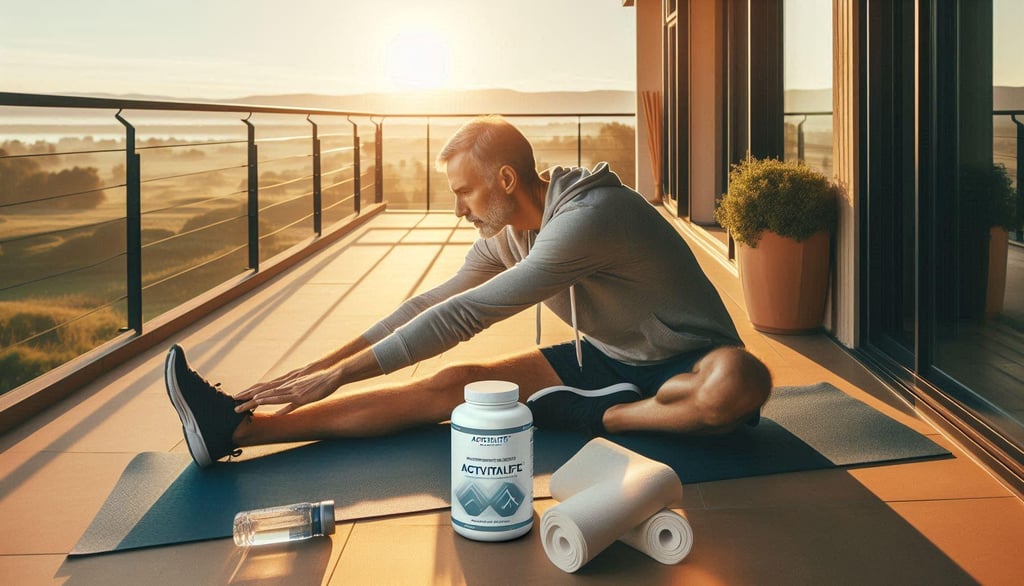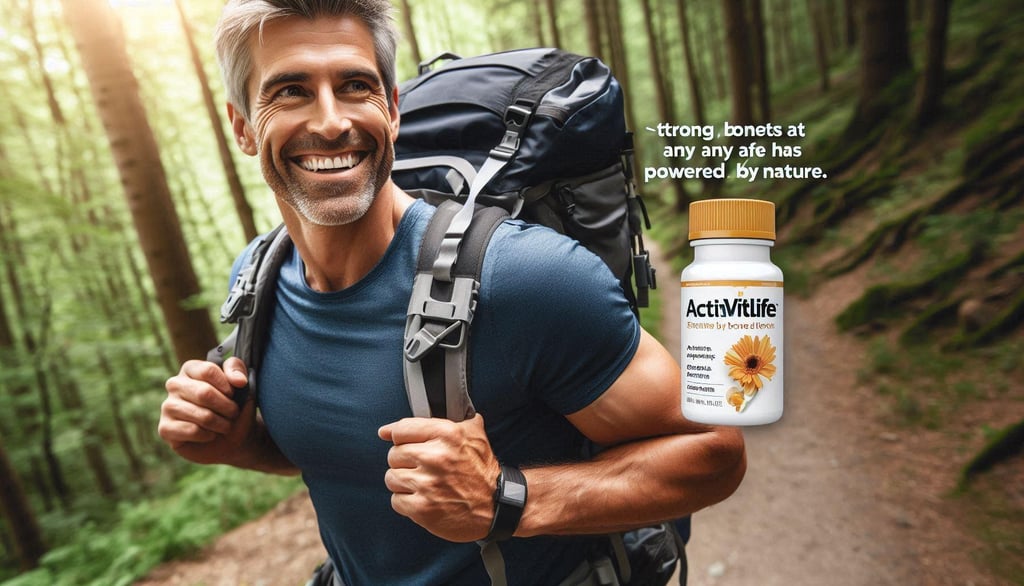How do I choose the best supplement for bones based on my diet?
Looking for the best supplement for bones? Find out which supplements are most effective in boosting bone density and overall bone health.
BONES & BODY WEIGHT
ActiveVitaLife
5/28/20257 min read
Discover the Best Supplements to Boost Your Bone Health
Did you know that one in two women over 50 will face a fracture due to weak bones? As we age, maintaining strong bones becomes crucial, yet many overlook early prevention. Osteoporosis affects millions, silently weakening bone density before symptoms appear.
Key Takeaways
10% of women over 50 have osteoporosis in their hips.
Men face a 25% fracture risk after age 50.
Calcium citrate is a top choice for better absorption.
DEXA scans are vital for monitoring bone density.
Early action reduces long-term fracture risks.
Why Bone Health Matters as You Age
Half of women and a quarter of men over 50 will break a bone due to thinning density. After your 30s, bone mass drops 1% yearly, accelerating after menopause or low testosterone levels. Without intervention, this leads to osteoporosis—a disease causing fragile, porous bones.
The consequences go beyond fractures. Hip breaks raise death rates 3–4x within a year. Many survivors lose independence due to reduced mobility. Key risk factors include:
Gender: Women lose density faster post-menopause.
Race: Caucasian and Asian adults face higher risks.
Low BMI: Thin frames often mean weaker bones.
Hormonal shifts and medications also play roles. PPIs (acid reflux drugs) and SSRIs (antidepressants) may reduce calcium absorption. Even diabetes treatments can weaken bones over time.
The Cooper Clinic advises DEXA scans at 40 for women and 60 for men. Dr. Hebert recommends pairing 2000 IU of vitamin D3 with calcium-rich foods like kale or almonds. Early action slashes long-term risks.
The Best Supplement for Bones: Top 5 Evidence-Based Picks
Building resilient bones requires more than just calcium. Science reveals five key nutrients that work together to maintain density and reduce fracture risks. Each plays a unique role in skeletal health.
1. Calcium: The Building Block
This mineral forms the structural base of your skeleton. Not all types absorb equally:
Citrate absorbs 22-27% better than carbonate on empty stomachs
Cooper Complete recommends 500mg doses for optimal uptake
Pair with meals if using carbonate forms
2. Vitamin D: The Absorption Booster
Without adequate D3, your body can't use calcium effectively. Research shows:
Softgels with meals enhance fat-soluble absorption
Blood levels between 40-70 ng/ml support bone metabolism
2000 IU daily maintains ideal levels for most adults
3. Magnesium: The Silent Partner
This mineral activates vitamin D in your body. Glycinate form offers dual benefits:
120mg supports vitamin D conversion
Take separately from calcium for better absorption
Reduces muscle cramps linked to low levels
4. Collagen: The Framework
Type I collagen peptides show remarkable results:
12-month studies demonstrate 30% density improvements
Cooper Complete includes hyaluronic acid for joint support
5g daily mimics bone's natural protein structure
5. Vitamin K2: The Traffic Director
This nutrient ensures calcium reaches bones instead of arteries:
MK-7 form remains active longest in your body
45-180mcg daily prevents vascular calcification
Works synergistically with vitamin D
The Cooper Clinic advises combining these nutrients with weight-bearing exercise. Regular DEXA scans help track progress and adjust intake as needed.
Supplements to Avoid for Bone Health
Not all bone health products deliver what they promise—some may even harm you. Certain ingredients, like strontium, can distort test results or increase fracture risks. Here’s what to watch for.
Strontium citrate tricks DEXA scans by mimicking calcium. It sits in bones, making density appear higher. Yet studies show it doesn’t reduce breaks. In fact, osteoporosis patients using it faced more fractures.
Europe’s strontium ranelate carries cardiac warnings. Dr. Rula’s research links it to heart disease and blood clots. The U.S. allows citrate forms, but experts urge caution.
Avoid products like:
Bone Builder Plus (contains strontium)
OsteoStrontium (markets as a “density booster”)
Some generic “bone strength” blends
These supplements displace real calcium in your body. Over time, bones weaken despite scan results. Always check labels and consult your doctor before use.
How Much Do You Need? RDA Guidelines
The NIH and Cooper Clinic provide clear guidelines for bone-supporting nutrients. These recommendations vary by age, gender, and dietary habits. Here’s what research shows.
Calcium needs spike after 50. Women require 1,200mg daily, while men aged 51–70 need 1,000mg. The Cooper Clinic suggests splitting doses—500mg per meal—for better absorption, as Dr. Hebert’s studies show.
Vitamin D requirements also shift with age. Adults under 70 need 600 IU/day; those older benefit from 800 IU. Pairing it with fatty meals boosts uptake.
Key mineral RDAs:
Magnesium: 320mg for adults (glycinate form preferred)
Vitamin K1: 90–120mcg (leafy greens)
K2: No official RDA, but 45–180mcg of MK-7 supports calcium routing
Upper limits matter. Exceeding 1,500mg calcium daily may cause kidney stones. Always balance supplements with food sources like tofu or fortified plant milks.
Vegetarians can meet needs through:
Almonds (75mg calcium per ounce)
Fortified oat milk (300mg per cup)
Edamame (98mg per half-cup)
Tracking your intake ensures you stay within safe, effective ranges. Pair these nutrients with weight-bearing exercise for optimal results.
Food Sources vs. Supplements: Finding the Right Balance
Your plate plays a bigger role in bone strength than you might think. While calcium supplements help, food sources often provide better absorption and additional nutrients.
Dairy products like yogurt (245–384mg per cup) pack a calcium punch. But leafy greens like kale (94mg/cup) and collards offer plant-based alternatives. Fortified almond milk delivers 200mg per serving, ideal for lactose intolerance.
Bioavailability matters. Your diet absorbs 30% of dairy calcium but only 5% from spinach due to oxalates. Sardines with bones provide both calcium and vitamin D, enhancing uptake.
Vitamin D is scarce in foods. Fatty fish (salmon: 570 IU per 3oz) and egg yolks are rare natural sources. Most people need fortified options or sunlight to meet needs.
Lactose intolerance? Try:
Fortified orange juice (300mg per cup)
Edamame (98mg per ½ cup)
Tofu set with calcium sulfate (250mg per ½ cup)
Magnesium-rich foods like almonds and pumpkin seeds support minerals absorption. Pair them with vitamin C-rich peppers to boost collagen formation.
A sample 1,200mg calcium day:
Breakfast: Greek yogurt + fortified cereal (500mg)
Lunch: Sardine salad + collard greens (400mg)
Dinner: Tofu stir-fry + almonds (300mg)
Supplements fill gaps, but prioritize food first. Track intake to ensure balance without exceeding safe limits.
Lifestyle Habits to Maximize Bone Strength
Science confirms that movement and meals work together to maintain skeletal strength. The Cooper Clinic found combining targeted exercise with Mediterranean diet patterns reduces hip fracture risk by 21%. These daily choices directly impact your bone density and long-term resilience.
Move to Improve
Weight-bearing activities stimulate new bone mass formation. Aim for 30 minutes per day of:
Brisk walking or hiking (ground impact matters)
Resistance training twice weekly (squats, lunges)
Balance exercises like tai chi to prevent falls
Non-weight-bearing workouts like swimming don’t offer the same density benefits. The Cooper Clinic prescribes stair climbing for osteopenia patients—each step strengthens hip bones.
Eat for Your Skeleton
What you eat impacts how well your body uses bone-building nutrients. Key Mediterranean diet components:
Olive oil (1 tbsp daily reduces inflammation)
Fatty fish twice weekly (salmon for vitamin D)
Nuts and seeds (magnesium sources)
Protein intake matters—aim for 1g per kg of body weight. Studies show seniors consuming 90g daily have 30% lower fracture rates.
Hazard Reduction
Two habits sabotage bone health:
Smoking decreases calcium absorption by 40%
More than 2 alcoholic drinks daily speeds bone loss
Quitting smoking improves bone density within 8 weeks. Try nicotine patches paired with weight training to keep bones strong during cessation.
When to Get a Bone Density Test
Timely bone density tests can prevent fractures before they happen. The Cooper Clinic recommends baseline DEXA scans for women at age 40 and men at 60. High-risk groups, like postmenopausal women or men over 70, may need earlier screening.
-1.0 to -2.5 indicates osteopenia (low bone mass)
Below -2.5 signals osteoporosis
Scores above -1.0 are normal. Medicare covers tests every24 monthsfor qualified patients.
The painless scan takes 10–15 minutes. You lie still while a machine measures hip and spine density. Wear loose clothing and avoid calcium supplements 24 hours prior.
Follow-up frequency depends on initial results:
Normal: Retest in 3–5 years
Osteopenia: Every 1–2 years
Osteoporosis: Annually during treatment
Discuss yourriskfactors with aproviderto personalize screening schedules.
Conclusion
Strong bone health requires a proactive approach—combining key nutrients, smart testing, and daily habits. Prioritize calcium citrate (500mg doses), vitamin D3 (2000 IU), and magnesium glycinate for optimal support.
Always test first. A DEXA scan reveals your real needs, avoiding guesswork. Pair supplements with leafy greens, fatty fish, and weight-bearing exercise.
Avoid smoking and excess alcohol to keep bones resilient. The Cooper Clinic’s bone health quiz helps personalize your plan. Start today—your future skeleton will thank you.
FAQ
What are the most important nutrients for strong bones?
Calcium, vitamin D, magnesium, vitamin K2, and collagen play key roles in maintaining bone density and strength. These work together to support structure, absorption, and mineral balance.
Can I get enough calcium from food alone?
Dairy products, leafy greens, and fortified foods provide calcium, but some people—especially older adults—may need extra help from supplements to meet daily requirements.
How does vitamin D affect bone health?
Vitamin D helps your body absorb calcium efficiently. Without enough, bones can become weak, increasing the risk of fractures over time.
Are there supplements that could harm bones?
Excessive iron or zinc can interfere with calcium absorption. Always check with a healthcare provider before adding new supplements to your routine.
When should I consider a bone density test?
Women over 65 and men over 70, or younger adults with risk factors like fractures or low body weight, should discuss testing with their doctor.
Do weight-bearing exercises really help bones?
Yes! Activities like walking, dancing, or lifting weights stimulate bone growth and slow mineral loss, keeping your skeleton resilient.
Is collagen worth taking for bone strength?
Emerging research suggests collagen may improve bone density by supporting the protein framework that holds minerals like calcium in place.
Read the Article: Where can I buy effective knee pain relief products online?
Activevitalife
Your Guide to Weight Management & Muscle Building
Contact:
Trust
contact@activevitalife.click
© 2025. All rights reserved.
Disclaimer: The information provided on this blog is for general informational and educational purposes only and should not be considered medical advice. The content is not intended to diagnose, treat, cure, or prevent any disease or health condition.








